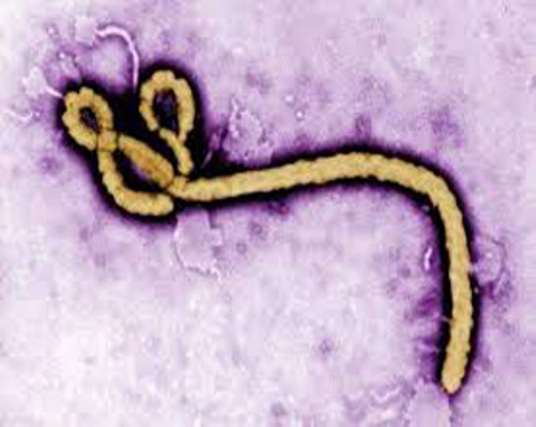-
09 October 2014
Category : Opinion
Responses to Ebola
¿Puedo contraer la enfermedad del Ébola de una persona infectada que no tenga fiebre o alguno de los síntomas? A ésta y a otras dudas sobre el virus y la enfermedad del Ébola da respuesta el epidemiólogo Chesco Nogareda y coordinador científico del Programa MediPIET para la formación de epidemiólogos en la región mediterránea que lidera la FIIAPP junto al Centro Nacional de Epidemiología del Instituto de Salud Carlos III(CNE-ISCIII).Can I catch Ebola from an infected person who does not have a fever or show any symptoms? Chesco Nogareda epidemiologist and scientific coordinator of the MediPIET Programmefor the training of epidemiologists in the Mediterranean region, led by the FIIAPP along with the National Epidemiology Centre of the Carlos III Institute(CNE-ISCIII), answers these and other questions about the Ebola virus and Ebola virus disease.

The current outbreak of Ebola is the largest in history and the first to occur in West African countries. It is affecting several countries in this region (Liberia, Guinea Conakry and Sierra Leone). Because of the way the virus is spread, it does not represent a significant risk for countries distant from the African continent or for the rest of the world.
As of 1st October, the number of reported cases and deaths are as follows:
– Guinea: 1,199 cases and 739 deaths;
– Liberia: 3,834 cases and 2,069 deaths;
– Sierra Leone: 2,437 cases and 623 deaths;
– Nigeria: 20 cases and 8 deaths (latest case confirmed in Lagos on 5th September, 2014)
– Senegal: 1 case, no deaths. Case confirmed on 28th August, 2014On 6th October, Spanish authorities reported one confirmed case of Ebola in a healthcare professional who participated in the treatment of a Spanish citizen infected with Ebola in Africa and repatriated to Spain. The infection of this nurse’s aide represents the first case of transmission of the Ebola virus in the European Union.
What is Ebola virus disease?
This fatal and rare disease is caused by infection with one of the strains of the Ebola virus (Zaire, Sudan, Bundibugyo or Taï Forest ebolavirus). The Ebola viruses are found in several African countries. The Ebola virus was discovered in 1976 near the Ebola River in what is today the Democratic Republic of the Congo. Since then, there have been sporadic outbreaks of Ebola in various African countries.What are the signs and symptoms of Ebola virus disease?
The signs and symptoms of Ebola include fever (above 38.6°C) intense headache, muscular aches, vomiting, diarrhoea, abdominal pain or unexplained bleeding or bruising. The symptoms may appear between 2 and 21 days after exposure to the Ebola virus, but most commonly appear between 8 and 10 days.How the Ebola virus is spread
The virus is transmitted through direct contact (through broken skin or cuts, or mucous membranes) with the blood or bodily fluids (urine, faeces, saliva, vomit or semen) of a person who has Ebola virus disease; or through animals (game), monkeys, apes and bats; or with objects, such as needles, contaminated with the virus. The Ebola virus is not transmitted through air or water or, in general, through food; nevertheless, in Africa the Ebola virus can be spread through the handling of meat from wild animals (game) and contact with infected bats.
There is no evidence that it can be spread by mosquitoes or other insects.Who is most at risk of contracting Ebola?
Healthcare professional who treat patients who have Ebola virus disease, and the family members and friends of infected people who are in close contact with sick people through transmission via blood or other bodily fluids.Can I catch Ebola from an infected person who does not have a fever or show any symptoms?
No. People infected with the Ebola virus are not contagious until symptoms appear.Can an Ebola survivor still spread the disease after recovery?
People who recover from Ebola can no longer spread the virus. Nevertheless, the Ebola virus can be found in semen for up to three months. It is recommended that people who have recovered from Ebola abstain from sexual relations or use condoms for the following three months.How is Ebola treated?
There is no vaccine or specific drug that has been proven to prevent or cure Ebola. The signs and symptoms of Ebola are treated as they appear. The following basic treatment measures can increase the probability of survival if used from the beginning.– Administer fluids and electrolytes.
– Maintain adequate oxygen and blood pressure levels.
– Treat other infections that appear.It is important to detect Ebola early in order to provide adequate care to the patient and to prevent the infection from spreading.
How can I protect myself from the Ebola virus?
If you are currently in an area affected by an outbreak of Ebola, or are going to travel to one, you can protect yourself by taking the following measures:– Wash your hands frequently.
– Avoid any contact with the blood and bodily fluids of any person,
especially anyone who is ill.
– Do not touch objects that may have come into contact with the blood or
bodily fluids of someone who is infected.
– Do not touch the body of any person who has died of
Ebola.
– Do not touch bats or non-human primates or their blood or bodily
fluids, and do not touch or eat raw meat from
these animals.
– Avoid going to hospitals where patients with Ebola
are being treated.
– Seek medical attention immediately if any of the signs or symptoms of
the disease appear
– Limit your contact with other people until you can see a doctor.
Do not travel or go anywhere except to go to a centre for
medical treatment.The World Health Organisation has issued an advisory for travellers going to or returning from affected zones. More information here.
The views and opinions expressed in this blog are the sole responsibility of the person who write them.






